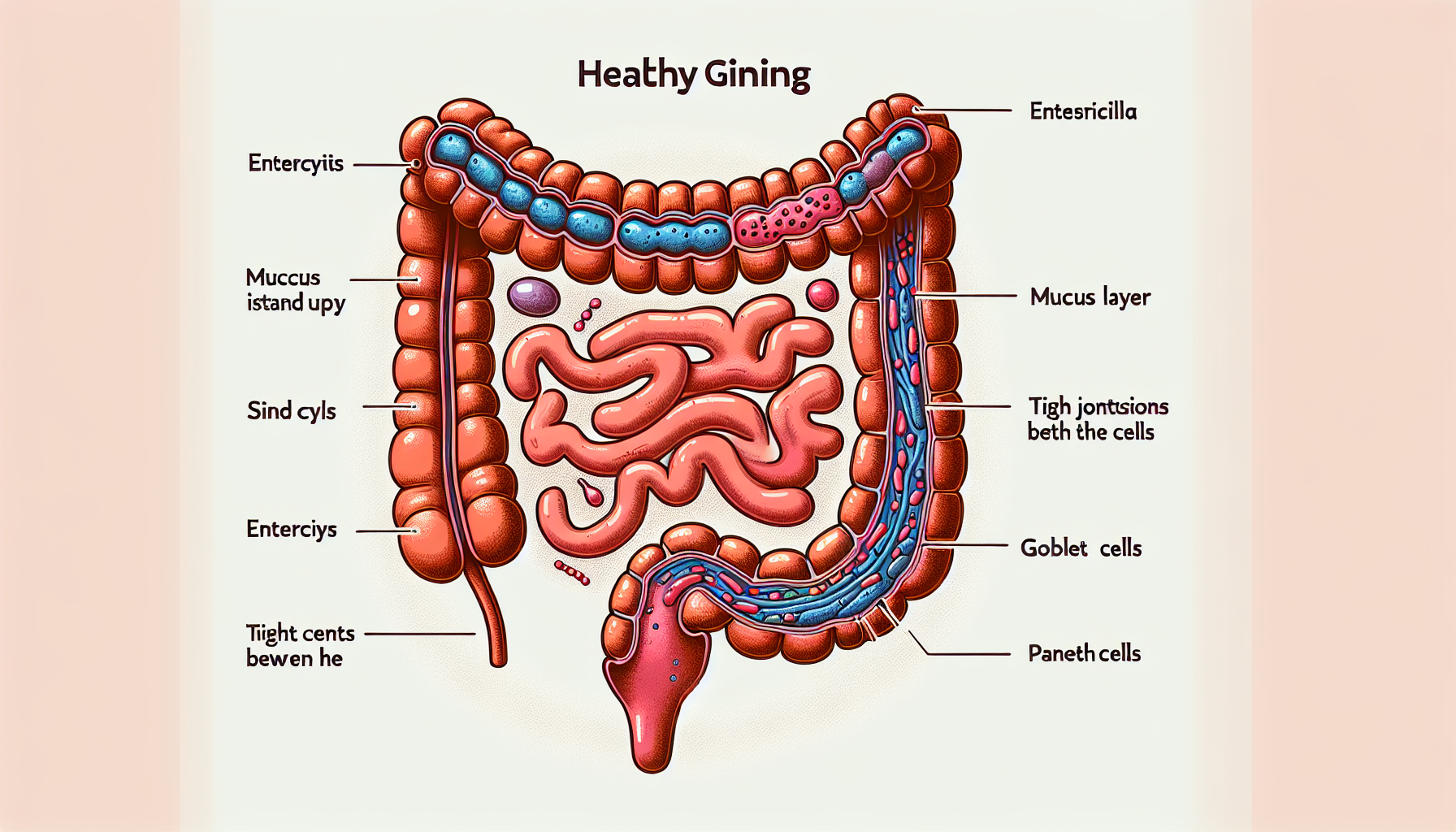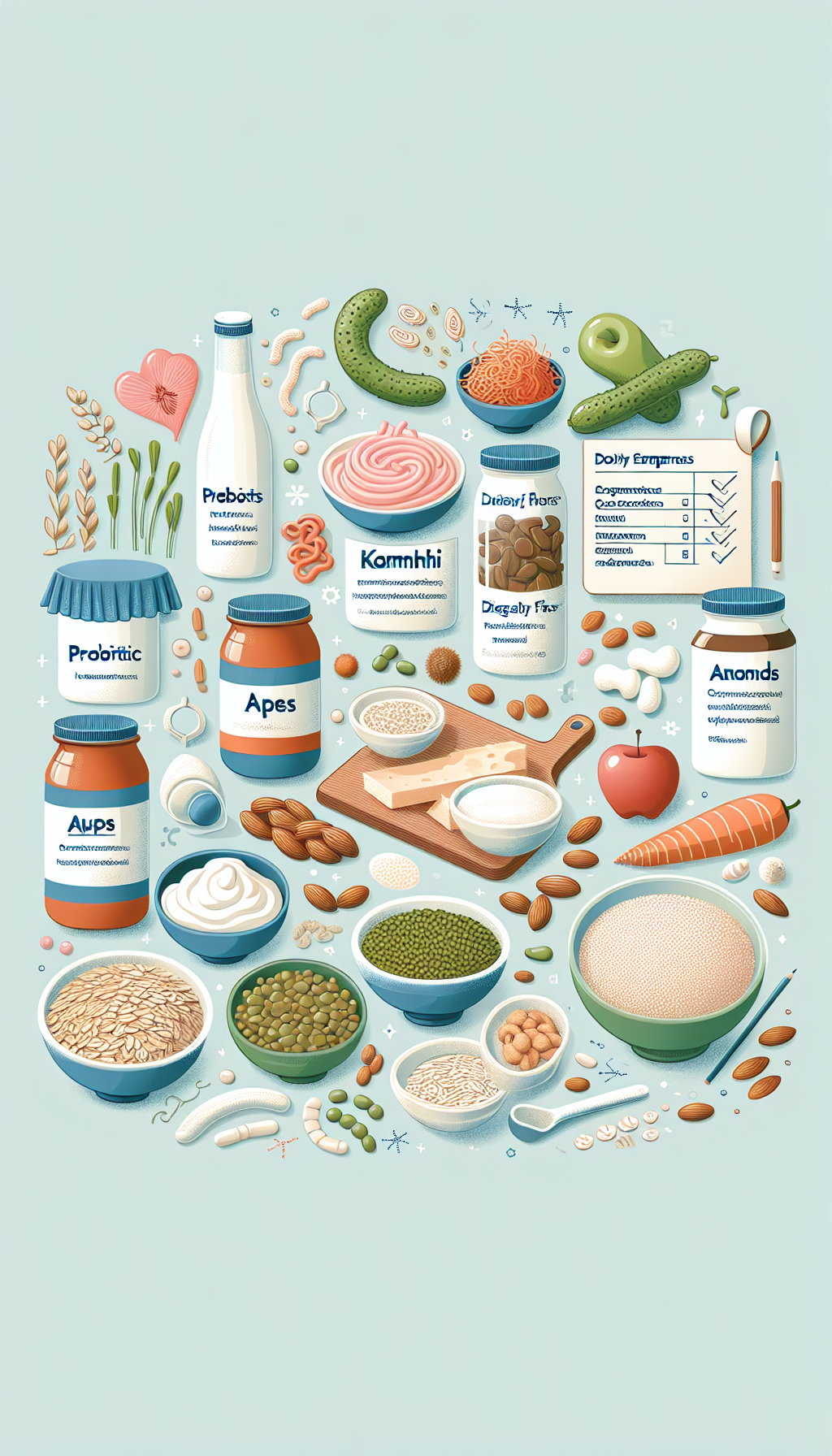Gut permeability, often referred to as "leaky gut," has become a topic of much discussion in the health community. Its role in maintaining overall wellness is crucial, as it affects not only our digestive health but also our body’s overall functionality. In this article, we will delve into what gut permeability is, its significance for health, and how to maintain a healthy gut lining.
What is Gut Permeability?
Gut permeability refers to the control our intestinal lining has over the substances that pass through the gut wall into the bloodstream. This lining acts as a barrier, deciding what gets absorbed and what gets rejected. Ideally, nutrients and water are allowed through while toxins and undigested food particles are kept out. However, when the intestinal lining is compromised, it may become too permeable, leading to what is commonly called leaky gut syndrome.
The Significance of a Healthy Gut Lining
The gut lining is integral to our overall health for several reasons:
-
Immune System Regulation: A significant part of our immune system resides in the gut. A permeable gut can lead to the exposure of pathogens and undigested food particles to the immune system, potentially causing inflammation and immune responses.
-
Nutrient Absorption: The gut wall is where nutrients are absorbed. If it’s compromised, it can lead to malabsorption and nutrient deficiencies.
-
Gut-Brain Axis: The gut communicates with the brain through the gut-brain axis. A permeable gut can affect mental wellbeing and cognitive function.
-
Prevention of Autoimmunity: When the gut barrier is intact, it helps prevent the development of autoimmune conditions by keeping potential triggers out of the bloodstream.
Causes of Increased Gut Permeability
There are various factors that contribute to increased gut permeability, including:
-
Diet: Diets high in processed foods, sugar, and certain fats can contribute to gut inflammation and increased permeability.
-
Stress: Chronic stress has been shown to affect gut barrier function. It can cause the tight junctions in the gut lining to open up, allowing substances to pass through that normally wouldn’t.
-
Medication: Certain medications, like nonsteroidal anti-inflammatory drugs (NSAIDs), can damage the gut lining.
-
Infections: Bacterial imbalances or infections can lead to gut inflammation and increased permeability.
-
Toxins: Exposure to toxins, including alcohol and environmental pollutants, can compromise the gut lining.
Symptoms and Health Implications
Symptoms of a leaky gut can be systemic and may include:
- Digestive issues such as bloating, gas, diarrhea, or irritable bowel syndrome (IBS)
- Chronic fatigue
- Skin conditions like acne or eczema
- Food sensitivities or allergies
- Nutrient deficiencies
- Autoimmune diseases
For a deeper understanding of how gut health impacts conditions like IBS, readers can explore "Strategies for Managing IBS and Promoting Digestive Health."
Testing for Gut Permeability
There are specific tests that can assess gut permeability, including the lactulose-mannitol test. These tests measure the ability of two non-metabolizable sugars to permeate the gut lining. High levels of these sugars in urine indicate increased permeability.
Strategies to Maintain and Restore Gut Permeability
Maintaining a healthy gut lining is essential for preventing leaky gut syndrome. The following strategies can help:
-
Diet: Focus on a diet rich in whole foods, fiber, and nutrients that support gut health. Fermented foods and bone broth are particularly beneficial.
-
Probiotics and Prebiotics: These can help maintain a healthy gut microbiota, which in turn supports the integrity of the gut lining. For more information on the role of these supplements, the article "The Importance of Prebiotic Foods in Gut Health" provides valuable insights.
-
Stress Management: Techniques such as meditation, exercise, and adequate sleep can help manage stress levels and protect gut health.
-
Avoiding Harmful Substances: Limit intake of alcohol, NSAIDs, and unnecessary antibiotics to reduce the risk of damaging the gut lining.
-
Natural Supplements: Certain supplements like L-glutamine, zinc carnosine, and omega-3 fatty acids have been shown to support gut lining health.
For those interested in exploring the role of dietary fibers in maintaining a healthy gut, "How Dietary Fibers Affect Intestinal Barrier Function" offers comprehensive coverage on the subject.
External Resources for Further Reading
To understand the science behind gut permeability, here are some niche, high-quality resources:
- A comprehensive review on gut permeability and its clinical implications
- An exploration of the gut-brain connection and its effect on stress
- A study on the impact of stress on intestinal barrier function
- Research on how diet influences intestinal permeability and health
- An analysis of the effects of dietary components on gut microbiota and barrier integrity
Maintaining a healthy gut lining is fundamental for overall health and wellbeing. By understanding the importance of gut permeability and implementing strategies to support it, individuals can make significant strides in improving their digestive health and, consequently, their overall quality of life.



